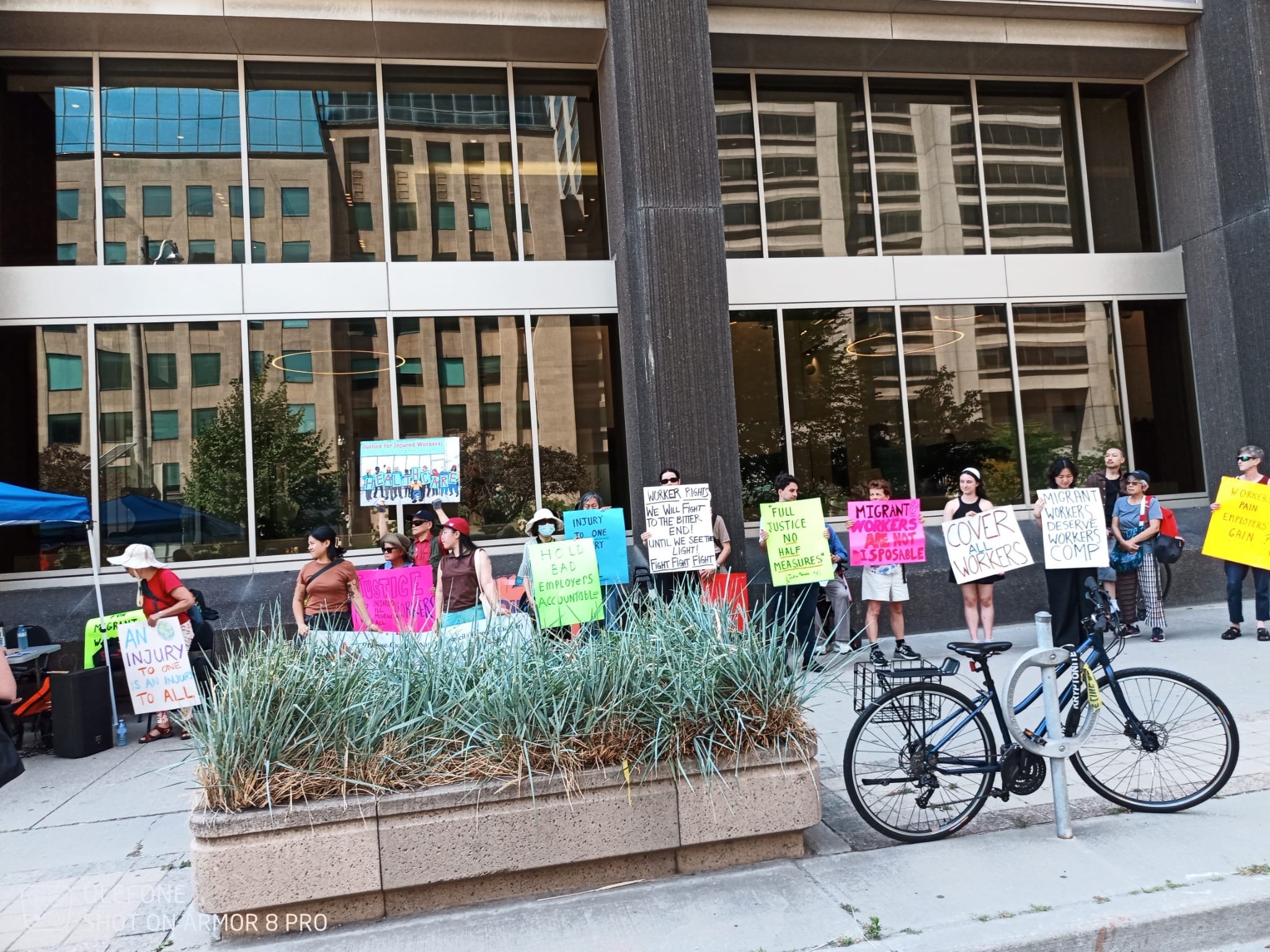Group speaks up about treatment of migrant workers ahead of investigation

The special fact-finding team that will investigate the status of Jamaicans working as seasonal agricultural workers in Canada is now in the country.
The Jamaican fact-finding team in Canada is comprised of:
- Helene Davis-Whyte (Chair) – president of the Jamaica Confederation of Trade Unions
- Donald (Danny) Roberts - deputy chairman of the Industrial Disputes Tribunal
- Wayne Chen – president of the Caribbean Employers Federation
- Raymond Eytle – second vice president of the Jamaican Employers' Federation
- Wayne Jones – deputy financial secretary of the Strategic Human Resource Management, Ministry of Finance and Public Service
- Sidia Madden – chief internal auditor of the Ministry of Labour and Social Security
- Kandre Leveridge – researcher/community development specialist
Read more: Advocacy group calls for revamp to support migrant workers
The team will probe approximately 70 randomly-selected farms over a two-week period “so that we would be able to ensure that there was validity to the work that we are doing [and] that there would be no bias in the report when we complete it,” said Davis-Whyte in a report from The Gleaner.
The group visited two farms on Monday, but their work started even prior to departing Jamaica, via virtual meetings with various stakeholder and advocate groups as well as principals of Canada's seasonal agricultural workers programme in Jamaica, the Jamaican Liaison Service in Canada and representatives of the Canadian government, among others.
The team has been mandated to deliver a report “that will ensure that the total picture is told of what exactly we have found, in terms of the conditions under which [Jamaican] farm workers work in Canada, and to also look at the programme itself… to see if [where necessary] we can make recommendations for improvement,” said Davis-Whyte.
Read more: Advocacy group questions deaths of five migrant farmworkers since March
Meanwhile, authors of the letter to Jamaica’s Labour Minister Karl Samuda about the workers’ conditions released a 40-minute video statement explaining their situation. The authors are members of the Migrant Workers Alliance for Change.
“The intimidation, the bosses are constantly on our back, telling us to move faster, especially new workers, they push them, they punish them for not working fast enough, it is not easy. The boss uses abusive words that I can’t use on camera, telling us that even our dead grannies can work faster than you,” said Philip Douglas, a father, and one of the authors of the letter.
“The system is broken, they don’t care about us. I have to pray each morning before I go to work. I say Lord, Lord, please give me strength, please don’t let me have any encounters with the boss today. If migrants get status for all then the bosses know that if they treat us that bad, then the person can go and seek a job elsewhere.”
Read more: Jamaican minister denies Canada farm workers’ claim on living conditions
The video also reveals for the first time that farmworker authors of the letter spoke directly to Minister Samuda for 30 minutes about their concerns. In August, following the death of a Jamaican farm worker in Ontario that month, the Migrant Workers Alliance for Change called for improved safety measures and a revamp of the system to better support workers.
Later, however, a Jamaican official rejected claims made by the farm workers that they are being subjected to mistreatment by their employers.
Back in May 2021, the same group questioned the safety of migrant workers while in quarantine as at least five migrant farmworkers.
Also, during the early months of the COVID-19 pandemic, some 25 per cent of the total death count because of COVID-19 were attributed to immigrants, according to a previous report. Also, migrant farm workers who come to Ontario from other countries are at higher risk of contracting COVID-19 and other diseases. This is due to their communal living and working conditions, according to a previous report.





